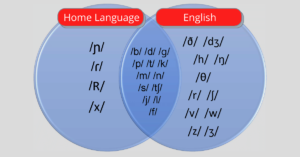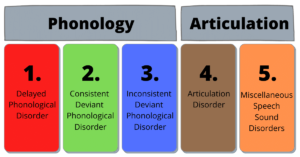Live Workshops and Webinars on EXACTLY what you need to refer, evaluate, treat, and dismiss children effectively.
Any Time – Any Place – Every budget!
After 20 years of traveling and engaging with SLPs through presentations we know that every year presents new challenges that are specific to you, your district, or your region of the country.
This means:
- Facing an incredible number of evaluations
- Doing more work with fewer professionals because of population increases and staff shortages
- Serving new and fascinatingly diverse populations
- All of the above!
Join the growing numbers of SLPs who are reducing their caseloads and improving their evaluations and therapy.
Prices vary based on workshop length, travel expenses, and discounts for inclusion of materials. Call or email us to find out how to get your staff the information they need to effectively serve diverse populations within your budget and timeframe.
512.480.9573
admin@bilinguistics.com
Some of Our Most Popular Speech Language Pathology Workshop Topics
Evaluation Considerations
Difference or Disorder?: Speech Development in Bilingual Children

Difference or Disorder?: Language Development in Bilingual Children
Successfully separate language differences caused by second language influence from true disorder. Learn about language structures that are affected by bilingualism as well as normal developmental patterns, cross-linguistic patterns, and atypical errors.
By understanding how language structures vary and can influence one another, SLPs can make a more informed decision when determining whether a bilingual child is presenting with a language difference or a language disorder.
Dynamic Assessment: Getting Real, Usable Information from our Testing

We all know that our standardized testing doesn’t always give us all the information we need. We also know that a truly accurate evaluation has both a standardizedl and non-standardized component. Dynamic Assessment covers all of our bases! In this course learn how to easily deep-dive into areas of concern and find out if the student is successful when supported. For true concerns, understand how much support a student needs to be successful, what that support looks like, and how to write appropriate measurable goals to get them there.
Speech and Language Intervention Topics
Curriculum-based Intervention

Cultural differences, language influence, and socio-economic issues can impact how successful we are in therapy. However, you can alter existing therapy materials and goals in order to take cultural differences and classroom needs into account.
Strategies for literacy-based intervention and increased vocabulary are presented along with downloadable therapy materials. Therapy goals that are applicable to Spanish and English speakers are given for the early childhood, young school-age, and school-age populations.
Literacy-based Intervention: Using Storybooks and Non-Fiction to Maximize Intervention

- Oral language skills
- Pragmatic skills
- Maintenance of joint attention
- Increasing vocabulary (Semantic)
- Increasing the understanding of word relationships and complex sentence structures (Syntactic)
Learn about all of the great reasons research has given us to use books to support speech and language development. We share the beloved literacy-based intervention activities from our book, which include activities for use before, during, and after shared reading. The activities address a wide range of speech and language goals. We provide templates that allow participants to develop their own kits for their favorite books with minimal effort. Kids love stories. This workshop combines the power of stories with a refined set of tools and templates that will drive speech, language, and narrative development.
Success with Speech Sound Disorders

This presentation follows a pilot study where children from two caseloads were better diagnosed using strict criteria for the types of errors they were producing. Therapy techniques per disorder class were applied resulting in an increase in intelligibility for each group. This course includes reproducible decision trees and reference charts to aid in the better diagnosing of speech sound disorders.
Professional Considerations
An Easier Referral Process : Improved Data, Collaboration, and Referrals

Successful speech referral processes can be quickly and easily implemented. This research-based case study profiles how to 1) achieve successful referrals while 2) reducing workload and 3) improving professional relationships. This presentation explains the step-by-step process that made this transition possible and profiles free online referral documents to begin immediately.
Ethical Considerations for Culturally and Linguistically Diverse Populations

Overcoming Behavioral Roadblocks in Speech Therapy

Working with Interpreters

Ask about discounted pricing for books included with presentations.

Don’t know what to choose? Send a free survey to your staff.
Every team, every year, every semester is unique. The real question is: What information would help your team improve how they serve children right now and simultaneously reduce the amount of work they are doing or increase their efficiency? A quick survey gets right to the heart of the matter.
Sample Survey of Your Staff's Greatest Needs
With so many speech pathologists working in so many different locations with so many different caseloads – How do we choose what to focus on? Contact us and we will send you a free survey to share with your staff that will show you EXACTLY what they need. Here’s an example:
How much do presentations cost?
Prices vary based on workshop length, travel expenses, and discounts for inclusion of materials. Call or email us to find out how to get your staff the information they need within your budget and timeframe.
How long are the presentations?
We present 90-minute, half day (3 hour), and full day (6 hour) presentations. We can join or lead your staff development days or present as part of your conferences. Really anything that works for your needs.
How many topics can be part of the presentation?
The number of topics depends on the number of hours and the needs of the attendees. As an example, a popular 3-hour course includes Difference or Disorder: Speech and Difference or Disorder: Language. Full days can usually accommodate three topics and are usually organized around a theme such as Evaluations, Intervention, Articulation and Phonology, or Language Disorders.
Here are some popular full day workshops that we give:
Intervention: Curriculum-based Intervention, Literacy-based Intervention, Success with Speech Sound Disorders
Evaluation: Difference or Disorder: Speech and Difference or Disorder: Language, Dynamic Assessment, Evaluating Children from Diverse Backgrounds
Specific topics that include evaluation and intervention:
Articulation and Phonology: Difference or Disorder: Speech, Success with Speech Sound Disorders, Maximizing Treatment Effects with VPI and Cleft Lip and Palate
Receptive and Expressive Language: Difference or Disorder: Language, Literacy-based Intervention, The Power of Receptive Language
How many people can attend?
We give hands-on workshops to small teams and have also presented to audiences of 600+ at state and national conventions. Anyone in your organization that can benefit from the information we share is invited. For webinar presentations, if attendance exceeds 500 we charge a one-time technology fee be able to provide enough “seats” for your team and ensure a reliable presentation.
Who can attend your presentations?
We primarily speak to speech-language pathologists. However, with such a high need for great resources on cultural diversity and bilingualism, general education teachers, special education teachers, diagnosticians, and school psychologists are frequently in attendance. Everyone benefits from topics on diversity, equity and inclusion. Early education teachers love the presentations on curriculum-based and literacy-based intervention. Diagnosticians and school psychologists benefit greatly from evaluation workshops.
We suggest that you invite anyone to come that is interested. For the full-day presentations, they can attend the portion that is most applicable to them.

I thought I would take a few minutes to update you on how your presentation continues to impact my clinical practice.
This is my sixth year as an SLP, and my second year working in the same school district in Lexington. This school year is my first year being at one school (after being itinerant, mostly at the middle school level). I’m at an elementary school that draws from a very diverse section of our city. Many, many students at our school are learning English as a second language (mostly Arabic or Nepali as their first language). The information you shared this summer couldn’t have come at a better time for me. I use the “Difference or Disorder” book frequently, and I’ve turned to the Bilinguistics website numerous times.
I feel so much more confident in making clinical decisions than I would have had I not attended your session this summer!
At the beginning of this school year, I made a plan for incorporating more literacy into my therapy sessions. In graduate school, I was fortunate to be part of a training grant with a focus on Language and Literacy. So naturally, your ideas fit so well with my framework and philosophy for speech/language intervention. My principal graciously gave me a purchase order for your “Literacy-Based Speech and Language Activities” book. I’ve loved the ideas and resources you share share in the book, Scott! Your session this summer and the book inspired me to write a grant proposal (a local grant) for building a collection of storybooks to use in therapy. I get so frustrated by commercially available SLP resources that don’t reflect the diversity of my students. I think literature is such a great way to honor the experiences our students bring. I found out a couple weeks ago that my proposal is going to be funded, and I can’t wait to get my hands on the books! (I can also stop renewing my favorites from the public library!)
I’ve also incorporated your “I work!” chant at the beginning of my sessions; such a great, age-appropriate way of students taking ownership over what they’re working on. I also love using the “I’m smart…” affirmation at the end of sessions! I have both of these posted by the door, and I love when students remind me if I’ve forgotten. And how did I ever teach story grammar without your clever story grammar rap?! Okay, I feel like I could go on and on about how much your session and method of therapy has impacted my practice, but I feel like I’m becoming redundant.
…but one more quick story: The clicker counters idea you shared! I had never thought of using the clicker counters before for tallying data, but it might be one of my favorite time savers ever. I ordered a set from Amazon, and my data collection will never be the same again! There are a couple students in particular who have become so motivated when I hand them the clickers to count their own accuracy rates…I’ve never seen faster progress with artic! I also had my principal come in to do an unannounced observation; she was impressed by the clickers and took the idea of using them to other teachers for tallying behaviors in the classroom, etc. It’s funny how something so low-tech can be so powerful, when we’re all consumed by what technology is supposed to be able to do for us!
THANK YOU so much for sharing your wisdom and talents!


